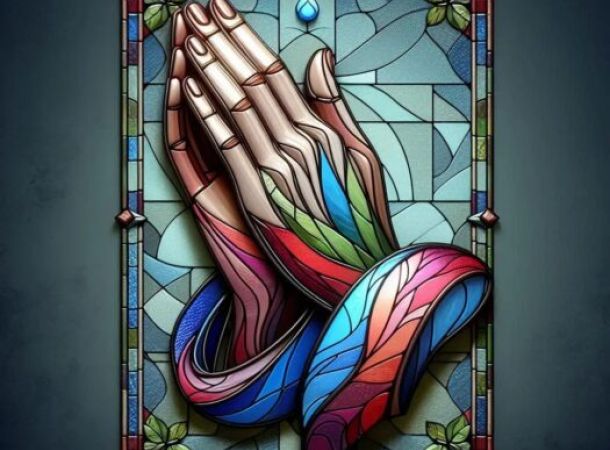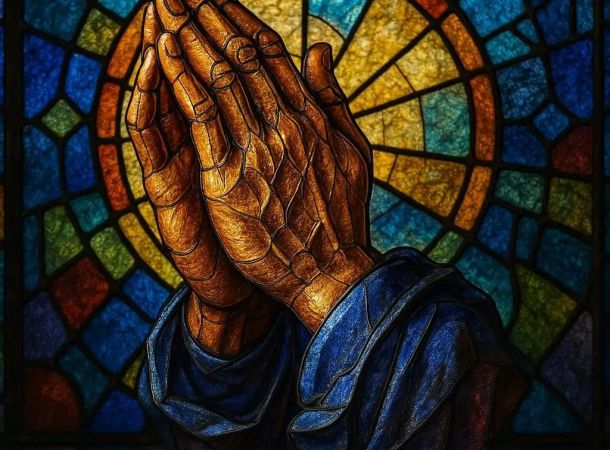Unrighteousness-Revamped
Va’etchanan is the next Torah portion found in Deuteronomy 3:23-7:11. Va’etchanan means, “I entreated” because Moses begged the Holy One to let him enter the Promised Land, to no avail. The enemy I would like to uncover in this portion is unrighteousness. Righteousness is a pervasive theme in the Bible. My parents raised me in Christianity, but today I practice a form of Judaism, mostly based on the approach the two faiths have towards the Wisdom of the Torah. In traditional Christianity, there is only one form of righteousness, and that is to trust in the righteousness of Yeshua. I am not saying that this notion is incorrect, but I want to share a different perspective that there are also other forms of righteousness.
First, let’s explore what righteousness is. You can easily find the definition of righteousness as being in right standing with humans and the Holy One, which is a good understanding. I like to think of righteousness as right choices that prevent or repair disconnections with God and others. I believe the commandments and instructions in the Hebrew Scriptures provide us with wisdom on how to repair the world and our relationships. I love this exerpt from Steinsaltz whose understanding is that “The world is broken and in need of repair, and mitzvot (commandments) are those acts which contribute to completion and wholeness. Sin then becomes a “defect in reality,” a failure to act for repair or, even worse, an addition to the imperfection of reality (p. 883).” I have memorized this statement for years because it is so beautiful. It truly captures the beauty and inspiration that righteousness brings to our lives. The above quote can be read in the article here that consolidates my beliefs and thought process so eloquently that you must read it!
Ok, focus, Brianna. I appreciate how the above article describes righteousness as the right or natural way to walk. Halakhah is the Hebraic understanding of how we live our lives, or how we walk them out. It points back to what Moses says in Deuteronomy 30:19, “I call heaven and earth as witnesses today against you, that I have set before you life and death, blessing and cursing; therefore choose life, that both you and your descendants may live.” Our halakhah is the path we walk to experience blessings that lead to life.
In our current Torah portion, Deuteronomy 6:25 reads, “Then it will be righteousness for us, if we are careful to observe all these commandments before the Lord our God, as He has commanded us.”
Interesting, so if we are careful to do all of the commandments, it will be righteousness for us. Unfortunately, without the righteousness of Yeshua, attaining this type of righteousness means you have to do all of the commandments that apply to you. In Deuteronomy 24:12-13, it says, “And if the man is poor, you shall not keep his pledge overnight. You shall in any case return the pledge to him again when the sun goes down, that he may sleep in his own garment and bless you; and it shall be righteousness to you before the Lord your God.” This means that if we help carry the burden of the poor, it is credited to us as righteousness. Yeshua’s followers always looked out for the poor to fulfill this righteousness (Gal 2.10). In Genesis 15:6, we read that Abraham “believed,” and it was credited to him as righteousness. Paul tells us that there is a righteousness that comes from “believing” in Yeshua, which excels all other forms of righteousness, to which I would agree. It does not, however, nullify other forms of righteousness, but rather creates a heart that desires to make right choices. Abraham and Yeshua’s righteousness are usually the only forms of righteousness people learn about in church.
Teachers and preachers have taught me that the righteousness found in this Torah portion is imperfect, and frankly, that is not true. The Wisdom contained in the Torah is a Tree of Life, and the Tree of Life is what would have given the Holy Spirit to Adam and Eve, producing eternal life (Pr 3:18, Gn 3:22, & Rm 8:13). What does it even mean that Abraham ‘believed’? It means that he believed that God was who He said He was and that He would do what He promised. In the same way, to have faith in Yeshua means we ‘believe’ that He is who He claimed to be, and that He will do what He said He would do. He said He would redeem us, renewing our earthly nature. When Abraham obtained righteousness by believing God, he went on to obtain the righteousness of obedience.
Genesis 26:4-6: And I will make your descendants multiply as the stars of heaven; I will give to your descendants all these lands; and in your seed all the nations of the earth shall be blessed; because Abraham obeyed My voice and kept My charge, My commandments, My statutes, and My laws.
James 2:21-22: Wasn’t Abraham our father proved righteous by works when he offered up Isaac his son on the altar? You see that faith worked together with his works, and by the works his faith was made complete.
In the same way, the righteousness that comes from believing in Yeshua’s perfect human nature and that His love and light overcame the darkness of death, we should also choose to obtain the righteousness of obedience, thereby completing our faith. Yeshua became the curse, which followed disobeying God’s instructions and rebellion, so that instead of obeying out of fear of curses and death, we obey because of love. There is a liberty for those who walk in covenant, it is to walk the path of right choices with a Snoop-a-loop limp sometimes, sometimes we crawl, sometimes we veer off path and have to realign. That is what children do, they make mistakes as they grow and learn what it means to be human. This liberty is if we don’t understand or if we do it wrong, as long as our hearts are motivated by love.
So, what about the commandments? There are 613 of them. Did Yeshua obey the 613 commandments? Nope. He did not, because some are for women, some for children and parents, some specifically for the Hebrews living in the land of Israel, some for the Priesthood, some for Kings, and so forth. Some people teach that all 613 commandments have been done away with, and now we only have to love God and love other humans. True, we do need to love the Holy One and others; however, if you have ever read the book The Five Love Languages, you have learned that if someone does not know the language of the love you desire, they could ‘love’ you all day long, and your love tank would still be empty. If we apply this to God, we could think we are loving Him all day, every day, and yet His tank is empty. God’s love language is righteousness, worship, and obedience. It is not my intention to interpret or expound on all the commandments, but I desire to inspire you to good works, which is another way of describing the commandments, good works that repair the brokenness in the world. This emphasis on good works is intended to empower you, reminding you of the responsibility we all share in repairing the world’s brokenness.
Hebrews 10:24-25: And let us consider how to stir up one another to love and good deeds. And do not neglect our own meetings, as is the habit of some, but encourage one another, and all the more so as you see the Day approaching.
The Ten Commandments are the constitution I try to live by. If one of the Hebrew definitions of sin means to “miss the mark”, then it is my goal to hit the following ten marks: to love the Holy One, to avoid idolatry, to carry the name of God responsibly, to honor the Shabbat, and to honor my parents. These five of the Ten Commandments are what I consider to be the foundation of what it means to love God, and the following five are what it means to love others. Don’t steal, kill (physically or with words), covet, lie, or be unfaithful. The remaining 603 commandments provide further details on these ten commandments. I think about it like this. My sixteen-year-old just got her license after about a year of studying driving laws and practicing. What if, instead of giving her helpful instructions and showing her the way to drive, I said, “Listen, sugar, all you have to know is don’t get into an accident and do not get a ticket. If you can do both of those things, you will be golden.” I could give her the keys to my hot rod and hope that her conscience will lead her to safe driving. The Bible says that all of the Torah and the prophets hang on these two commandments, meaning that the rest of the Bible shows you just how to fulfill those two commandments. The statutes and judgments are the consequences or repairs to the commandments being broken.
Matthew 22:36-40: “Teacher, which is the greatest commandment in the Torah?” And He said to him, “You shall love Adonai your God with all your heart, and with all your soul, and with all your mind.’ This is the first and greatest commandment. And the second is like it, ‘You shall love your neighbor as yourself.’ The entire Torah and the Prophets hang on these two commandments.”
Another thing I have heard is that only Yeshua was able to walk in the righteousness of the Torah. The Scriptures state that John the Baptist’s parents were blameless in the commandments, which is likely the reason John the Baptist was filled with the Divine Presence or Holy Spirit. Paul confidently says he was blameless in the righteousness of the Torah, and the forefathers were righteous according to the commandments. If to sin means ‘miss the mark’, then there is always forgiveness and mercy as we learn by making mistakes and re-aligning. Teshuvah or repentance has always been an essential part of God’s story. The difference is that Yeshua never had to do teshuvah; he never had to say sorry and realign because he authentically and wholly followed the Voice of the Spirit and the Word.
Luke 1:6: Together they (John the Baptist’s parents) were righteous before Adonai, walking without fault in all His commandments and instructions.
Philippians 3:6: Circumcised the eighth day; of the nation of Israel; from the tribe of Benjamin; a Hebrew of Hebrews; in regard to the Torah, a Pharisee; as for zeal, persecuting Messiah’s community; as for Torah righteousness, found blameless.
2 Corinthians 5:21: He made the One who knew no sin to become a sin offering on our behalf, so that in Him we might become the righteousness of God.
The enemy of unrighteousness adds to the brokenness of the world, rather than being part of its healing and restoration. It keeps you from the blessings that come from abiding in the Divine Presence, His protection, provision, and guidance. Walking in the righteousness of obedience is not required to enter the Kingdom of God. The righteousness of believing in Yeshua gets you in; however, you would be the least in the Kingdom of God.
Matthew 5:19: Therefore, whoever breaks one of the least of these commandments, and teaches others the same, shall be called least in the Kingdom of heaven. But whoever keeps and teaches them, this one shall be called great in the Kingdom of heaven.
For some people, getting into the world to come is enough, and they don’t care if they are the least. In this beautiful and straightforward video by The Bible Project, the Kingdom will be like the Garden of Eden or the Temple. The goal of the Bible is to return to the Garden of Eden, where humanity co-ruled over the Earth with the Holy One, producing life and maintaining the Divine Presence on Earth. The Garden of Eden was where Heaven and Earth collided. The Divine Presence emanates from the Holy of Holies, radiating outward from its center. If you are the least, that means you are the farthest away from this Presence. That is because the Presence is the WORD, written and audible, and if you do not love the Word, it will burn, cut, and affect you negatively (Jer 23.29 &Heb 4.12). You will be on the outskirts because you will have to learn how to abide in that Word safely.
THE SPIRIT AND THE WORD ARE NOT IN OPPOSITION, THEY ARE THE SAME EXACT THING. The Spirit is the internal embodied Word of God. I hope you can feel just how strongly I feel about that. What Yeshua did as the last Adam is that He made our Spirit, the Divine breath that God created us with, alive! The Holy One made us out of Earth and Divine Breath. The first Adam made our nefesh, animalistic or earthly nature, alive. That is why we are inclined to miss the mark, to sin, be proud, and selfish. We are born with a strong earthly nature, and without believing in the purity and holy nature of Yeshua, we cannot make our spirits stronger than our fleshly desires. When our spirit nature is alive, we will be inclined to obey the commandments written by the “finger of God” or the Holy Spirit. Yeshua tells us that He cast out uncleanliness or impurity of humans by the finger of God. In another synoptic Gospel, describing the same scenario, Yeshua cast out impurity by the Holy Spirit (Lk 11:20, Mt 12:28, Ex 31:18). I encourage you to always define Biblical terms with the Bible. The Spirit will always lead you to the Wisdom contained in the commandments, judgments, and statutes of the Holy One, and the written Word will always produce the fullness of the Holy Spirit.
Romans 7:21-24: So I find the principle—that evil is present in me, the one who wants to do good. For I delight in the Torah of God with respect to the inner man, but I see a different law in my body parts, battling against the law of my mind and bringing me into bondage under the law of sin which is in my body parts (flesh or earthly nature). Miserable man that I am! Who will rescue me from this body of death? Thanks be to God—it is through Messiah Yeshua our Lord! So then, with my mind I myself serve the Torah of God; but with my flesh, I serve the law of sin.
1 Corinthians 15:45-49: So also it is written, “The first man, Adam, became a living soul (nefesh/earthly nature).” The last Adam became a life-giving spirit. However, the spiritual is not first, but the natural; then the spiritual. The first man is of the Earth, made of dust; the second man is from heaven. Like the one made of dust, so also are those made of dust; and like the heavenly, so also are those who are heavenly. And just as we have borne the image of the one made from dust, so also shall we bear the image of the One from heaven.
Ezekiel 36:27: I will put My Spirit within you and cause you to walk in My statutes, and you will keep My judgments and do them.
Ezekiel 11:19-20: Then I will give them one heart, and I will put a new spirit within them, and take the stony heart out of their flesh, and give them a heart of flesh, that they may walk in My statutes and keep My judgments and do them; and they shall be My people, and I will be their God.
The new heart or spirit that Yeshua gives us is what grace is; it is the gift of a renewed heart, a spirit made alive. It leads us into righteous living because that is how we maintain the Divine Presence and sovereignty of the Holy One on Earth. Yeshua used the Finger of God to cast out impurity because it wrote the written word, and it is the Word of God that cleanses our hearts from uncleanliness.
Psalm 119:9: How can a young man cleanse his way? By taking heed according to Your word.
We are clothed in the righteousness of Yeshua so that we learn how to walk in the righteousness of the written Word, the righteousness of the trust and obedience of Abraham, and the righteousness of taking care of the vulnerable or the poor of our communities. All the righteousness described in the Bible can be summarized as loving God and others, but it is more cyclical than linear. These ideas are all connected by a heart that desires to be a part of God’s story.




Leave a Reply